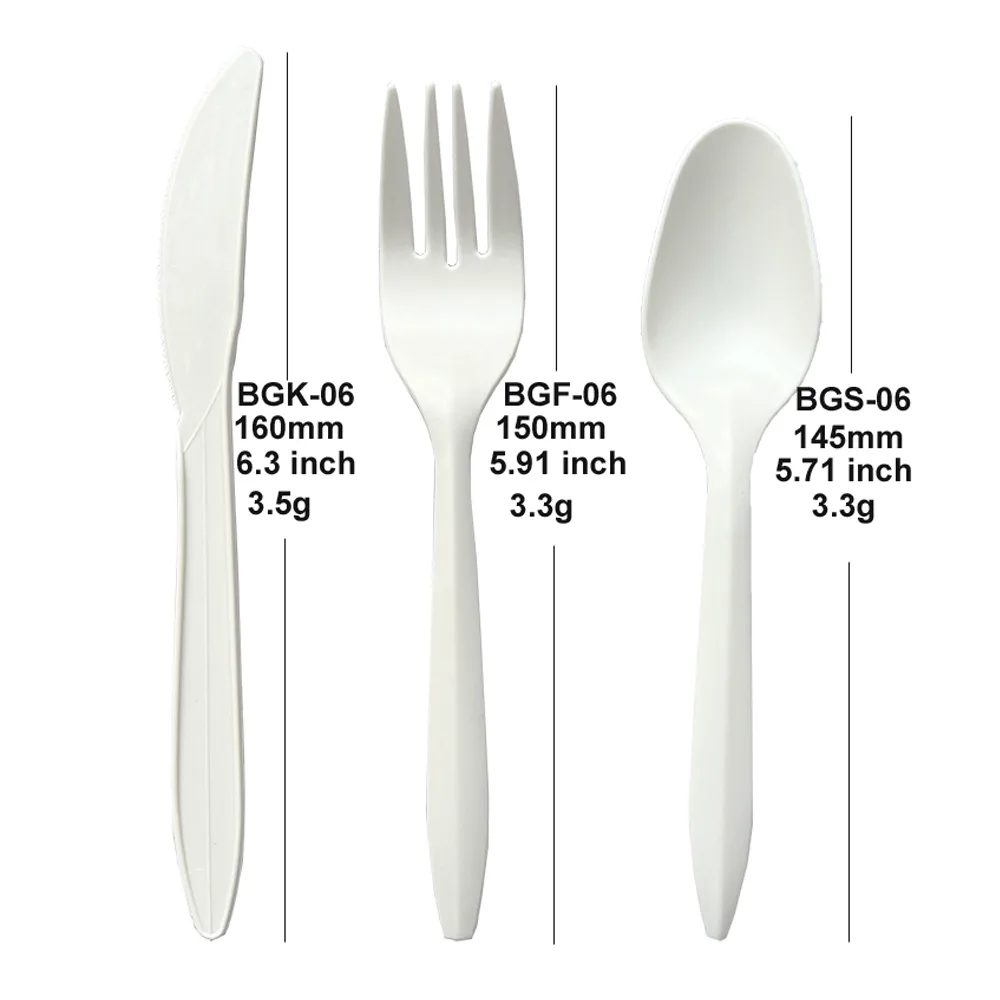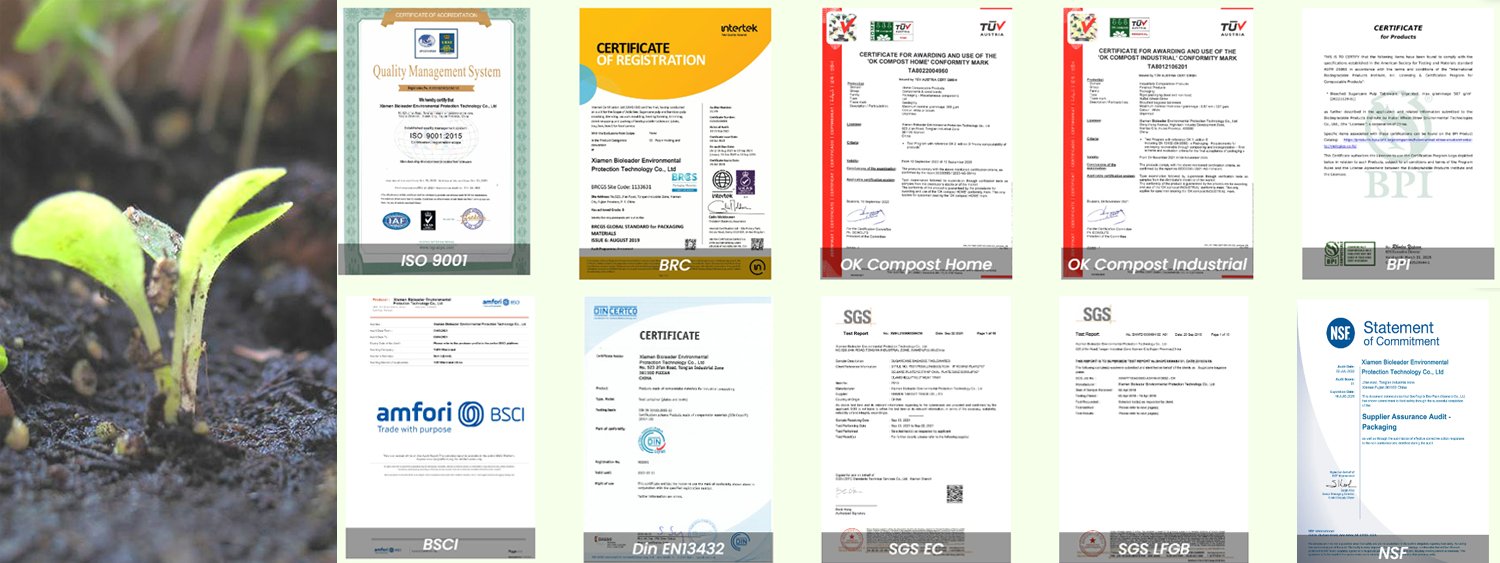Introduction: Small Tools, Big Transformation
They may look like ordinary forks, spoons, and knives. But the utensils you use every day are quietly contributing to a global environmental crisis. Every year, billions of single-use plastic cutlery pieces are tossed after a single use—clogging landfills, polluting oceans, and leaving a trail of microplastics behind.
However, an elegant, sustainable solution has emerged: cornstarch cutlery.
Made from renewable plants and designed to decompose naturally, these utensils are rewriting the rules of takeaway, delivery, and event catering. In this article, we'll explore six powerful ways cornstarch cutlery is driving the shift to waste-free foodservice—and why more businesses are making the switch in 2025.
What Is Cornstarch Cutlery and How Is It Made?
Cornstarch cutlery is crafted from PLA (polylactic acid) or CPLA (crystallized PLA)—bioplastics derived from the fermentation of corn starches and other plant-based sugars. These materials are formed into utensils that:
-
Look and feel like plastic
-
Are strong enough for hot and cold foods
-
Compost naturally in the right conditions
Variants may be 100% PLA or blended with bamboo, sugarcane bagasse, or other fibers for added strength or faster degradation.

1. Compostable in 90 Days or Less
Conventional plastic cutlery can take over 400 years to degrade. Cornstarch cutlery? Just 90–120 days in an industrial composting environment. Some blends, like those mixed with bagasse, can even break down in home compost bins in under 60 days.
This rapid decomposition is a game-changer for municipalities aiming to divert organic waste from landfills.
2. Heat-Resistant, Durable, and Restaurant-Grade
Don't let the word “biodegradable” fool you—cornstarch utensils are tough. CPLA formulations can withstand temperatures of up to 90°C (194°F), making them suitable for hot curries, soups, or stir-fry meals.
Use cases include:
-
Fast casual chains using compostable soup spoons
-
Eco hotels replacing plastic knives in room service sets
-
Airline meal trays now packed with CPLA forks and napkins
3. Health-Safe and Free from Toxins
Plastic utensils, especially when heated, can leach dangerous chemicals such as BPA or phthalates into food. Cornstarch-based cutlery is:
-
Non-toxic and safe for direct food contact
-
Petroleum-free
-
Tested to comply with global safety standards
That's why they're increasingly used in schools, hospitals, and childcare centers—where food safety matters most.
4. Beautifully Designed and Brandable
Cornstarch utensils aren't just functional—they're now stylish. Modern eco-friendly cutlery can be:
-
Matte or glossy finished
-
Colored or natural-toned
-
Laser-etched with logos
-
Individually wrapped or bundled in kits
For cafés, hotels, and caterers, these offer a visual upgrade that reinforces green values while elevating the dining experience.
5. Fits into Circular Waste Systems
Cornstarch cutlery works seamlessly with organic waste diversion programs. Certified utensils can be disposed of in green waste bins and processed at composting facilities that return nutrients to the soil.
Global examples:
-
Germany and Austria: Accept CPLA utensils in bio bins
-
California and Oregon: Compostable packaging mandates for foodservice
-
Tokyo and Seoul: Compost-based city sanitation strategies
6. A Response to Worldwide Plastic Bans
As governments crack down on single-use plastic, compostable alternatives are gaining regulatory favor.
Policy Highlights:
-
EU SUP Directive bans plastic cutlery since July 2021
-
India outlawed plastic forks, spoons, and knives in 2022
-
Dozens of U.S. cities, including New York and San Francisco, now require compostable foodservice items
Using cornstarch cutlery now ensures your business is ahead of compliance curves and waste laws.
Who's Leading the Way? Meet Bioleader®
If you're looking for certified, reliable, and high-quality cornstarch cutlery, Bioleader®, based in Xiamen, China, is an industry leader.
Why Bioleader?
-
Offers CPLA, PLA, and hybrid cornstarch utensils
-
Provides bulk supply or custom-branded solutions
-
Holds certifications such as EN13432, ASTM D6400, and BPI
-
Supports global shipping and custom packaging for foodservice clients
Whether you're a restaurant, wholesaler, or hotel group, Bioleader® helps you take a big step toward sustainability with every utensil.

Conclusion: One Utensil at a Time, A Greener Table
Cornstarch cutlery isn't just about waste—it's about changing the entire life cycle of food consumption. With performance that matches plastic and an environmental profile that beats it, these utensils are leading a quiet revolution.
In 2025 and beyond, sustainability starts not with sweeping policies or expensive overhauls—but with the simple choice of which fork you hand to a customer.






